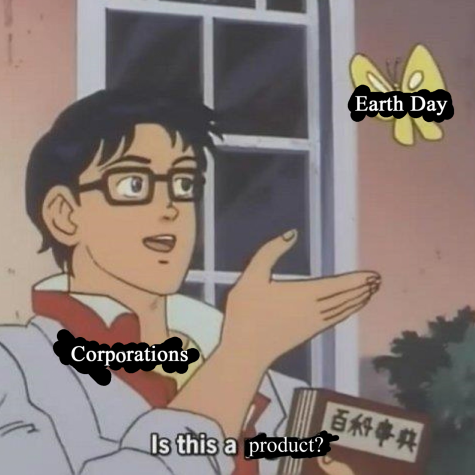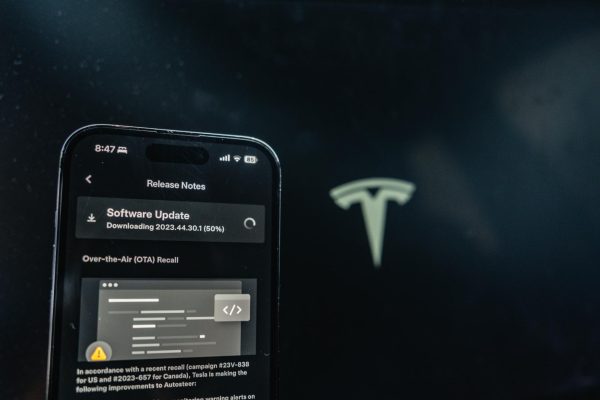Earth Day -Another Capitalist Holiday?
The first Earth Day was 49 years ago, on April 22, 1970. Over 20 million people took to the streets after Gaylord Nelson, a Wisconsin senator, spurred them into action.
No one, not even Senator Nelson, could know how the holiday would transform into a global phenomenon, or the fact that giant corporations would encroach upon it.
While the rest of America had been protesting the Vietnam War and reading Rachel Carson’s “Silent Spring,” the best-selling novel on the dangers of pesticides, Senator Nelson had witnessed desolation first hand. He had been present for the 1969 Santa Barbara oil spill, a man-made disaster which resulted in almost 16,000 cubic meters of crude oil spilling into the Pacific Ocean.
Seeing his nation torn apart by protests and wrought with toxic waste, he concocted the idea for a holiday which would channel America’s outrage into something constructive. Thus, Earth Day was born, and each year it has grown exponentially. The holiday is the largest secular observance in the world, with over 140 participating nations each year.
And then the marketers came.
They brought slogans such as “Eco-Friendly” and taglines that read “Green,” “100% Organic,” and “All Natural.” For example, there is a beer can dispenser known as the “eCool” which is designed to be buried in the ground, using “mother nature’s refrigerator” to keep your beverages cool. It “cools your conscience,” according to the eCool website.
No, really. Google it.
A less eccentric, but no less flawed example can be found in the cleaning products aisle of just about any grocery store. The next time you’re in Fred Meyers or QFC, go take a look at the dish soap. More specifically, look at all the dish soaps labeled “green,” and take a peek at their ingredients. Then look at the warning label. Marketing like this is known as greenwashing, which is when companies promote their products as being “green” just because it’s a buzzword nowadays, but they make little effort to actually limit their environmental footprint.

However, contrary to what many might argue, a few bad apples do not actually spoil the whole bunch.
Stewart Sinning, the supervisor for Edmonds Community College’s very own Green Team, points to personal accountability as the remedy to over commercialization. “I think that consumers have to do their own research and decide for themselves if purchasing this is gonna have an impact and what that impact is gonna be,” he said.
Sinning fondly remembers the Earth Day lessons that were taught to him in grade school, and his involvement in EdCC’s Green Team stretches back to the recession. “I was a member of the Green Team myself,” he says, adding that it was while he earned a degree in energy management.
Since then, Sinning has been spearheading the team’s efforts to empower and educate the community on sustainable practices, as well as working with nonprofits, sponsoring educational films, and removing invasive species.
The Green Team is also responsible for handling the waste management and recycling of any events held on campus, as well as participating in the national “RecycleMania” event which encompasses colleges from all over the United States. “We collected about 12,000 pounds of e-waste,” Sinning said, beaming with pride. “It must have been a whole truck full of packing foam.” When all is said and done, no one can argue that Sinning is passionate about the environment and about Earth Day. So if the holiday were truly under siege by massive faceless corporations, Sinning would be among the first to fight back. However, he knows that Earth Day is so much more than just an American holiday. “America may commercialize it, but it does bring attention on a global scale,” he said.
Sinning goes on to add that in 1990 there were 200 million people worldwide, and across 141 nations, who participated in celebrating Earth Day. Additionally, in 2010, 250,000 people rallied at the National Mall in support of climate change policy. And as if that still wasn’t enough, he goes on to remark “There was a global tree planting initiative that engaged 70,000 partners in 192 countries celebrating Earth Day.”
Even if you don’t take the global perspective into account, there’s still much positive to be said about the impact of Earth Day in America alone. It led to the founding of the Environmental Protection Agency, the Clean Water Act, the Endangered Species Act, and the Clean Air Act.
“It’s grown every year and more often than not it gets people together to think about some of the issues facing our environment, and it may lead to behavior change by participants or policy change,” said Sinning, who goes on to add “obviously corporations are in their own best interests, but there are some corporations who think about sustainability.”
He’s not wrong. There’s a list as long as your arm of the companies that are constantly making strides toward sustainability, and who scoff at greenwashing with a genuine attitude of compassion. IKEA, Panasonic, and even IBM are just a few of the most recognizable names to have made an effort in limiting their environmental footprint.
Ultimately, as consumers, it is our job to vote with our dollars. If we fail to conduct adequate research and capitulate to buying products which contain volatile chemicals, or whose production alone was an affront to nature, then those products will keep getting produced. But if we’re responsible, and we seek out those companies that are genuinely green, then they will continue to grow as their greenwashing competition languishes.
Sinning says it best. “Even a small act, when multiplied by millions of people, can make a difference.”












